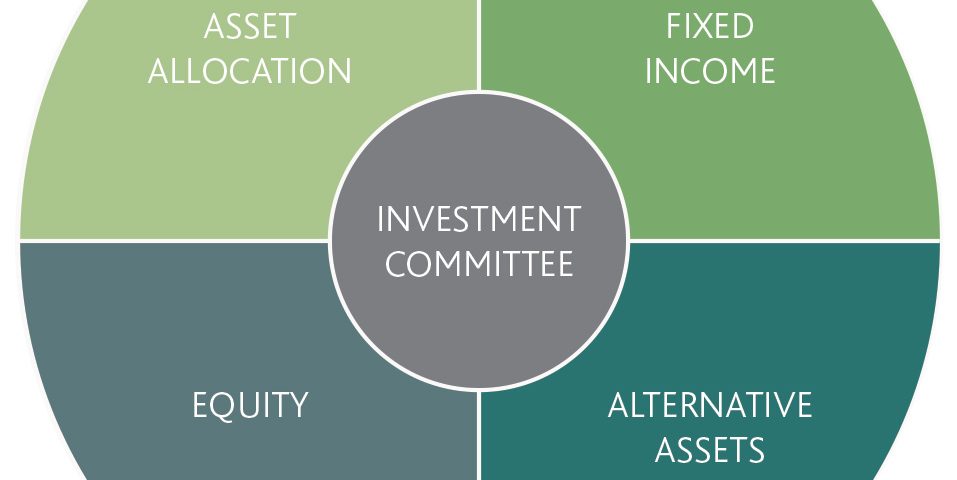
Investment Committee – December 2021
As 2021 comes to an end, Omicron has reminded the world that we are not yet out of the pandemic woods. However, despite rolling health scares, the economic recovery has continued. Our Investment Committee met for December with one major issue to discuss: What will it take to end this melt-up of the equity markets?
The current market ecosystem depends on some implicit central bank cushion. This sets a floor in most asset prices and adds ample liquidity in the system. Central banks act as an absorber of volatility in the markets. Monetary policy has thus solved most liquidity issues, but not any looming solvency issues. Corporate debt to GDP is orbiting all-time-highs. The Committee suggested we should focus on the credit market to check for future shocks. It also advised that a potential alternative source of market nervousness going forward may arise from the inflation front. A critical argument for the overall market picture is whether or not investors at some point believe that central banks are behind the interest rate curve, a signal they might perhaps become anxious that monetary policy might prove too little to have a significant impact on rising inflation. Data on this question appears to be contradictive at best but the main point brought forward is to rarely fight against a central bank.
Lastly, it was noted that the cryptocurrency market has increased significantly and can potentially create some negative feedback loop in the event of some sell-off.
One prominent feature of the equity markets is how they often behave as discounting mechanisms, often valuing current prices by estimating future changes in the economy or some specific sector or an individual firm. It was argued that the prospects of a permanent solution for the corona-crisis has probably driven growth and travel and hospitality & leisure stocks to a periodic high, and valuations will require a series of looping positive feedback to justify such hefty assessments. Equity valuations are stretched and the Committee once again reiterated its strong conviction for value stocks – i.e. stocks that currently offer relatively compelling price ratios and a considerable dividend.
The debate on bonds once again came to the understanding that bonds can no longer serve the role neither of income generator nor risk diversifier. Although it was mentioned how in the recent equity downturn sovereign bonds actually did provide some relief rally, the Committee is in doubt whether this can still be the norm going forward – particularly in an inflationary environment – and appreciates that there are obvious pros and cons in any hedging strategy. Considering the potential cost; how bad should things become before a hedge kicks-in; and how certain one can be that the hedge will work, the Committee proposes we cut down in duration and be very considerate with the corporate debt that we select for our client portfolios.
A big challenge is to identify alternative to fixed-income hedges that can provide necessary cash liquidity during market downturns, and going long equity volatility was suggested as a substitute. It was again discussed how today investors are not comfortable with the heightened role of derivatives in the overall market and it thus focused on customer-friendly solutions for the individual client. Multi-Barrier-Reverse-Convertible (MBRC) notes were discussed thoroughly, and were decided to be marketed as the best proposal to apply our market views for the new year.
Interest in MBRCs has grown exponentially during the past years, and particularly in Europe they have now become a mainstream component of (nearly) every private portfolio. At KM Cube, we believe they might prove an ideal alternative for investing during a late-cycle market. You can read more on our post here (Our approach on Reverse Convertibles).
Our offering

Unicorn Systematic Strategies
In systematic investments we manage your portfolio based on a set of several well-known trading strategies that offer a sound academic and scientific background. Throughout the years we have implemented and applied these strategies ourselves.
The benefits of systematic strategies are well-known as they eliminate the behavioural bias, reduce costs and increase the probability of profit in a longer investment horizon .

Global Navigator
The flagship of our product offerings is the Incometric Athos Global Navigator Fund. The Fund is a Luxembourg-based UCITS that aims to perform absolute returns in every environment.
Incometric Athos Global Navigator focuses on capital preservation and attempts to minimize correlation to stock and bond prices. Its strategy holds a core portfolio of fixed-income securities plus some high-conviction stocks for the long-term, topped-up with an overlay strategy of financial derivatives to weather the downturns.

Value Stock Selection
One of the most effective ways to identify value stocks is the Piotroski f-score. We employ this metric along with some additional value criteria to limit the universe of more than hundred thousand companies to a few canditates. A ranking methodology then is applied to identify a managble set of companies that we can then deploy in our portfolios. Such a portfolio has the potential to withstand inflationary pressures and benefit from the rotation towards value sectors.

Disruptors
Disruptors companies are companies that have introduced new business models and changed established industries in a significant way. Prominent examples are Amazon, Google, Netflix and many others. Identifying such companies at early stages is considered very difficult and often quite risky as by definition their business model is out of the ordinary and there is no certainty that such model will work.
Apart from the inherent risk in this style of investing, fundamentals are usually poor and one cannot use conventional metrics.
We deploy a three step approach using relaxed fundamental and market criteria, inclusive keywords and weighted ranking.

Structured Note Ideas
Structured notes offer indirect access to alternative risk premia (particularly correlation and
volatility) something that can be explored in your portfolio allocations. Visit out interactive tools site to see our most recent ideas.